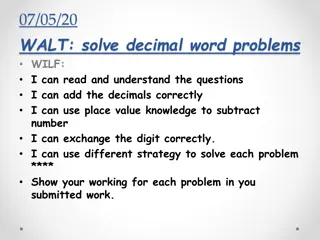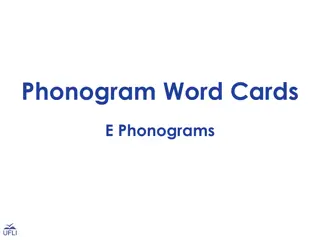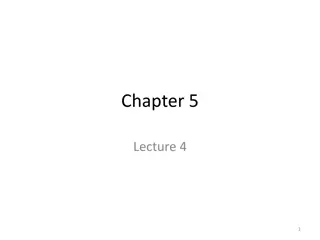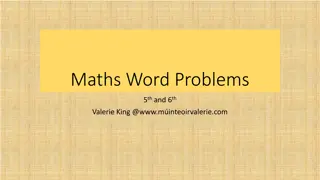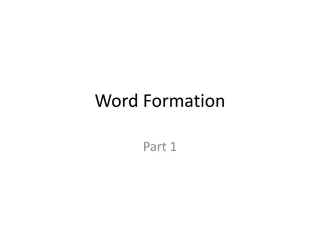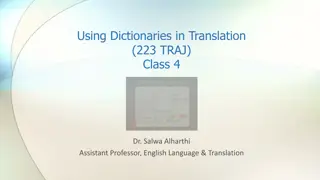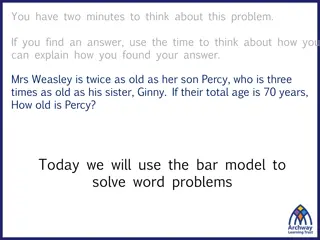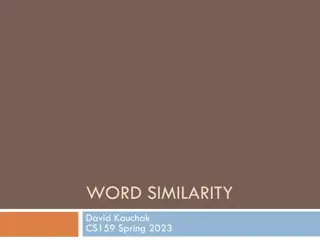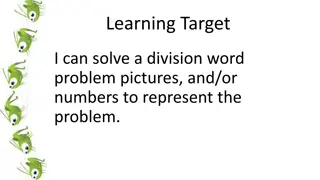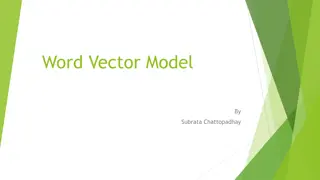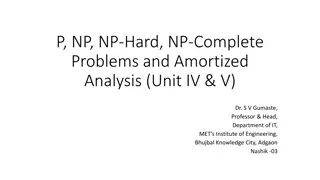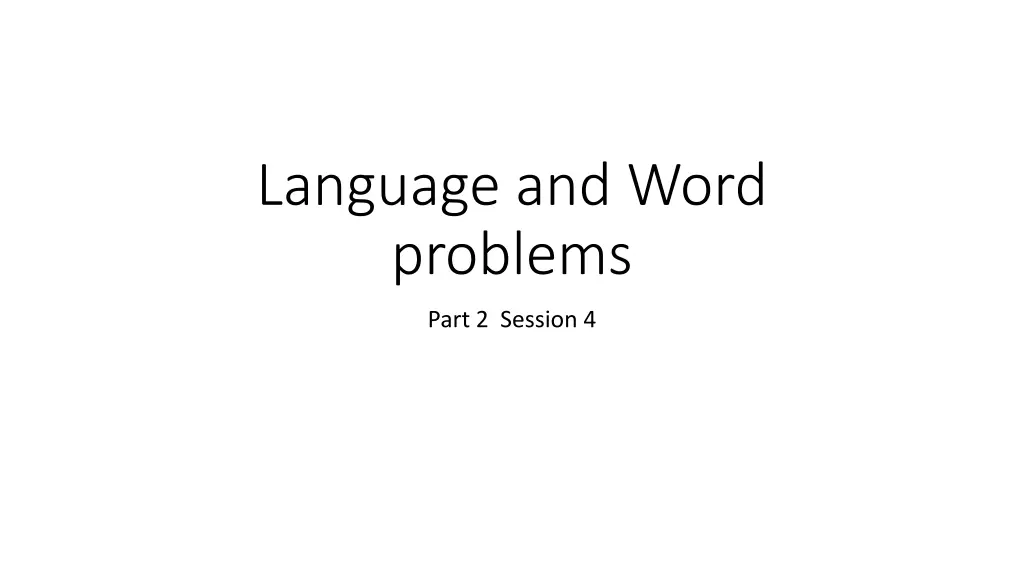
Solving Language & Word Problems Effectively
Explore various language and word problems scenarios, including syntax, prepositions, and ambiguities, to enhance problem-solving skills. Understand abstract and natural language concepts through practical examples. Improve comprehension with engaging word problem exercises like calculating reductions and understanding multiple options. Dive into intriguing scenarios like collections, bus passengers, and egg collection math. Discover effective strategies like bar modeling to tackle word problems with confidence.
Download Presentation

Please find below an Image/Link to download the presentation.
The content on the website is provided AS IS for your information and personal use only. It may not be sold, licensed, or shared on other websites without obtaining consent from the author. If you encounter any issues during the download, it is possible that the publisher has removed the file from their server.
You are allowed to download the files provided on this website for personal or commercial use, subject to the condition that they are used lawfully. All files are the property of their respective owners.
The content on the website is provided AS IS for your information and personal use only. It may not be sold, licensed, or shared on other websites without obtaining consent from the author.
E N D
Presentation Transcript
Language and Word problems Part 2 Session 4
Syntax Prepositions divide 25 by10 and divide 25 into10 reduce this price by 20 and reduce this price to 20 Ambiguities What is 10 divided into 5? (2 or 0.5?) How much is 5 more than 3? (2 or 8?). www.judyhornigold.co.uk
58 13 = 45 Fifty-eight subtract thirteen equals forty five Abstract and natural language As a word problem? There were 58 people on the bus and 13 got off. How many were left on the bus? If there are 58 people on the bus and 13 get off then there will be 45 people left. Multiple options www.judyhornigold.co.uk
Miscues in word Miscues in word problems problems Sam has 18 computer games that is 5 more than he had last week. How many games did he have last week? www.judyhornigold.co.uk
End of primary test question In March, Ken collects 2, 3 or 4 eggs each day. In the first 20 days he collects 57 eggs. What is the greatest number of eggs that he could collect in March? www.judyhornigold.co.uk
Who is this story about? Ken s eggs What is the story about? Re phrase without the numbers- Ken collects some eggs
Fourbidden Fourbidden Game Game www.judyhornigold.co.uk
Can you guess the four words?
Can you guess the word? www.judyhornigold.co.uk
Dyslexia and Reading - Bar model www.judyhornigold.co.uk
Bar Modelling Bar Modelling When solving word problems, it is often not the calculation that children can t do rather they are not sure which calculation they need to do. (NCETM, 2013) www.judyhornigold.co.uk
Part- Whole Model Variations of Bar Model Comparison Model Before After Model www.judyhornigold.co.uk
Aaron has three times as much money as Beth. Together, they have $120. How much do they each have? www.judyhornigold.co.uk
Aaron Beth www.judyhornigold.co.uk
Bar Model example Zack spent 1/5 of his savings on a gift and of the remainder on a book. The book cost $12. How much were Zack s savings? www.judyhornigold.co.uk
Zacks Savings Book $6 Book $6 Gift www.judyhornigold.co.uk
Before and After Problem Sam had 5 times as many marbles as Tom. If Sam gives 26 marbles to Tom, the two friends will have exactly the same amount. How many marbles do they have altogether? www.judyhornigold.co.uk
Before Sam Tom After Sam Tom Where are the 26 marbles? Can you see? www.judyhornigold.co.uk





